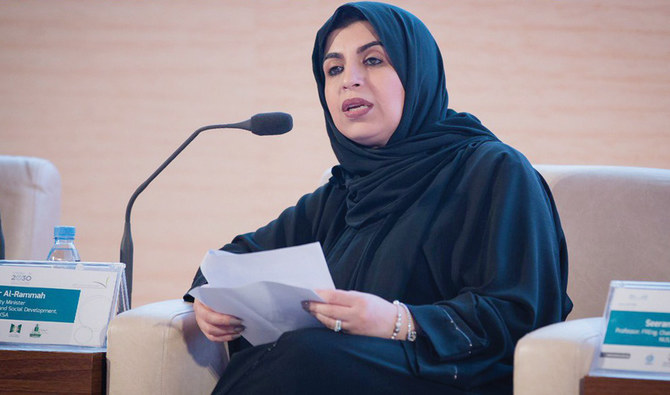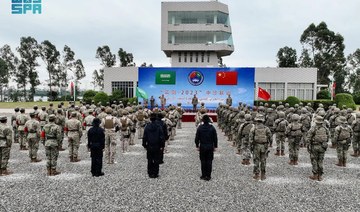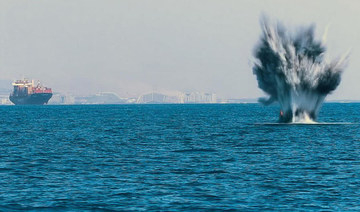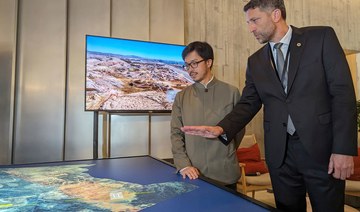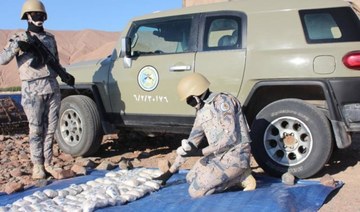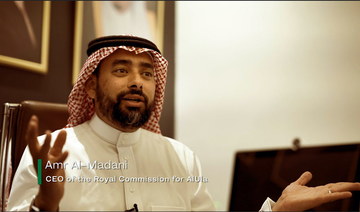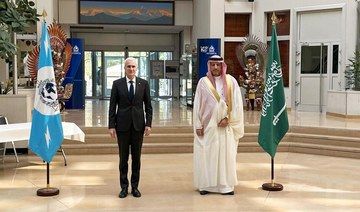RIYADH: Saudi Arabia’s Ministry of Labor and Social Development has set itself 12 objectives as part of ambitious plans to improve its services, help more Saudis find work, guarantee a prosperous future for the country and achieve sustainable development.
The initiative, launched under the National Transformation Program (NTP) 2020, part of the Kingdom’s Vision 2030, was announced by Dr. Tamader bint Youssef Al-Rammah, the deputy minister of labor and social development. It is part of a working paper she presented in Riyadh during a session, titled “Skills and the Future of Labor,” at the International Exhibition and Conference on Higher Education (IECHE 2019), which was organized by the Ministry of Education.
Al-Rammah said that the ministry seeks to empower all citizens, including women and those with disabilities, who are able to work to support themselves by integrating them in the labor market.
“The ministry also endeavors to achieve higher levels of sustainable economic contribution for volunteering, increase quality volunteering opportunities for everyone who wishes to volunteer across the Kingdom, enrich their experience with volunteering by increasing the number of volunteers from 23,000 to 1 million by 2030, and improve the economic value of each volunteer from SR0.6 ($0.16) per hour to SR15 per hour,” she added.
Al-Rammah said the ministry is working to increase the focus of local companies on social responsibility by encouraging them to diversify their activities in this area, and raise the level of their contributions through the provision of community development services. It also aims to increase the nonprofit sector’s sustainable economic contribution to the gross domestic product (GDP) from 0.3 to 0.6 percent, and the percentage of workers in the sector from 0.13 to 0.32 percent of the total workforce.
She added that the ministry is planning to establish a national center for the development of the nonprofit sector to ensure its independence and contribution to development needs.
She said the ministry aims to help nonprofit organizations increase the social and developmental revenue from their initiatives and services; improve their efficiency; strengthen their role in providing and implementing innovative solutions to meet development challenges and needs; and create opportunities for social investment.
The ministry also plans to develop legislation and services that will empower persons with disabilities and provide them with the opportunity to integrate with and be active in society, by increasing the proportion of employed persons with disabilities from 7.7 percent to 12 percent by 2020.
Al-Rammah said that the Authority for the Care of Persons with Disabilities has been established for this purpose, and that the ministry will launch a National Strategy for Persons with Disabilities, as the Kingdom is a member of the UN Convention on the Rights of Persons with Disabilities and its Optional Protocol.
She also said that employment for women is a right and a necessity, not a luxury or secondary issue in society. She pointed out that one of the objectives of the NTP 2020 is to increase the rate of participation in the labor market by women from 17 to 25 percent by empowering them, making it easy for them to perform jobs, and developing the retail sector.
“As an extension to Vision 2030, and in view of the social protection system program, Saudi Arabia seeks to develop and provide a unified comprehensive national platform for all means of support,” said Al-Rammah.
“The platform will provide all laws, policies and programs for helping social security categories face crises, and empowering them, as well as providing them with suitable job opportunities.”



